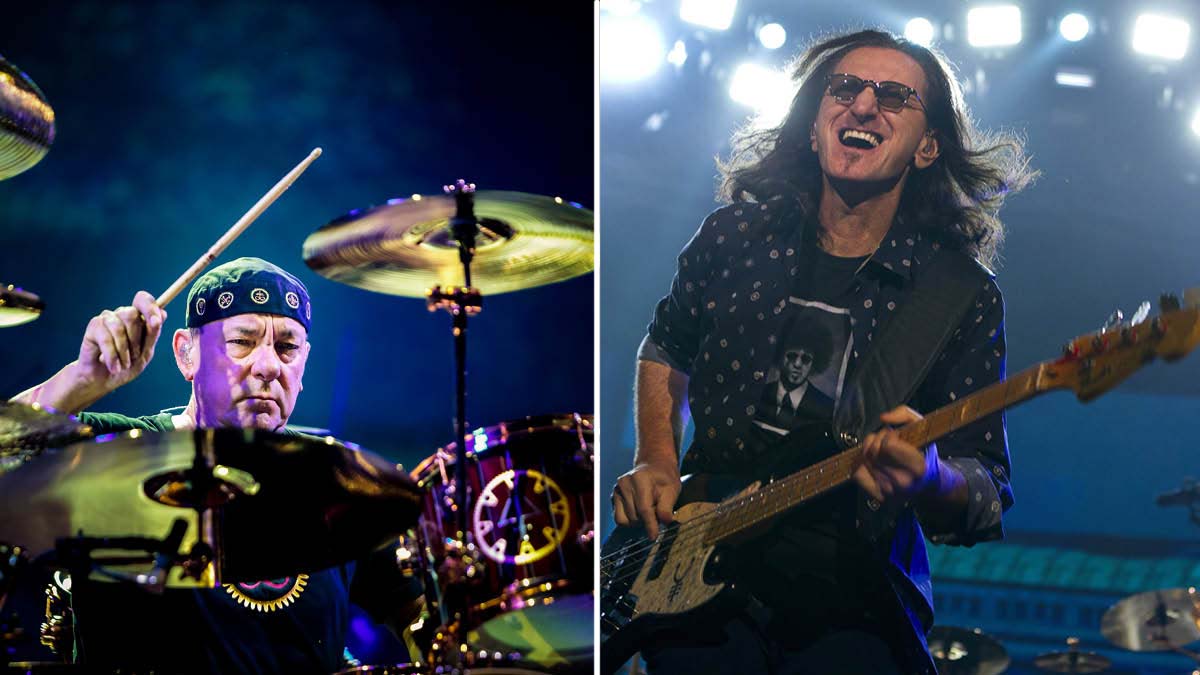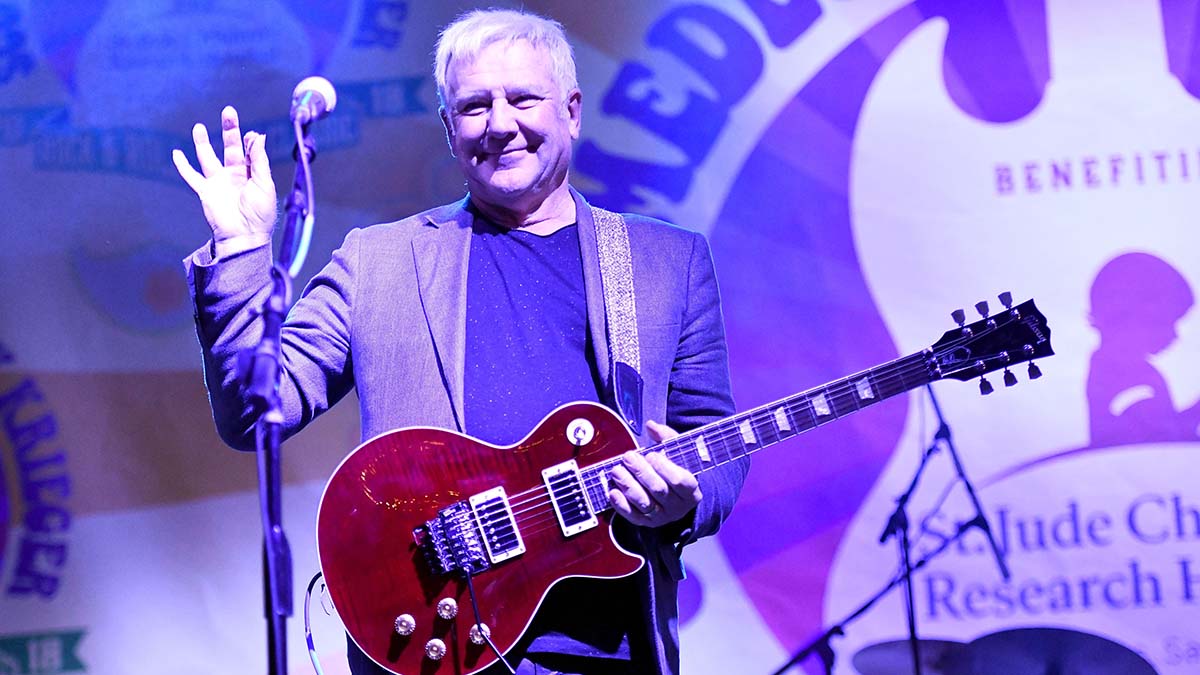Rush’s Geddy Lee and Neil Peart voted greatest rhythm section of all time
The pair top MusicRadar GOAT hunting polls to find the best bassist and drummer ever – will Alex Lifeson join them on guitar? And who plays keys? Well, that's up to you...

Want all the hottest music and gear news, reviews, deals, features and more, direct to your inbox? Sign up here.
You are now subscribed
Your newsletter sign-up was successful
MusicRadar readers have voted Geddy Lee as the greatest bassist of all time, with the Rush frontman joining drummer Neil Peart on the hallowed pantheon of GOATs – and, by implication, proclaiming via democratic process that the Rush rhythm section is the greatest of all time.
Of course, calling Lee and Peart a rhythm section almost sells their contribution short. Besides being a one-man rhythm machine with forensic sense of the pocket, Peart – or the Professor as Rush fans know him – was the band's main lyricist, and helped lead from behind the kit. Geddy Lee, meanwhile, was its frontman and master of ceremonies, whose dynamic bass style offered both rhythmic and melodic counterpoints to Alex Lifeson's guitars.
Peart, who passed away on 7 January 2020, aged 67, was followed in second place by the late Led Zeppelin drummer John Bonham, with Buddy Rich in third. Ginger Baker, another great who is sadly not with us, came in fourth, and what we would give to hear his comments on finishing behind anyone. Ginger never missed.

• Learn 4 Alex Lifeson guitar chords from classic Rush songs
As for the GOAT bassist poll, Lee edged out second-placed Jaco Pastorius, with The Who's John Entwistle in third. Paul McCartney, who enjoyed some success with a Liverpudlian modern beat combo named the Beatles, came in fifth. Macca can at least console himself knowing that none looked cooler sipping tea in a Fair Isle sweater.
MusicRadar's GOAT hunt is still ongoing, however. We will be opening the polls to find the the GOAT guitarist, keyboardist and vocalist in due time. Which begs the question whether Alex Lifeson will join Peart and Lee, and if so, can democracy pick suitable collaborators on keys and someone to front this Rush+2 supergroup?
As for Lifeson and Peart, scarcely has there been a more productive collaboration. With Alex Lifeson, the trio remained a tight unit across a career of constant evolution. With the Canadian trio so consistently fascinating and life-affirming on record or on stage, who could pick a highlight? Limelight? YYZ? But what about La Villa Strangiato, Xanadu, Tom Sawyer... ? And so on. That's the sign of greatness. The polls agree.
Bookmark our GOAT hunt landing page and be sure to cast your vote when the polls open for guitarists, keyboardists and vocalists.
Want all the hottest music and gear news, reviews, deals, features and more, direct to your inbox? Sign up here.
Jonathan Horsley has been writing about guitars and guitar culture since 2005, playing them since 1990, and regularly contributes to MusicRadar, Total Guitar and Guitar World. He uses Jazz III nylon picks, 10s during the week, 9s at the weekend, and shamefully still struggles with rhythm figure one of Van Halen’s Panama.
